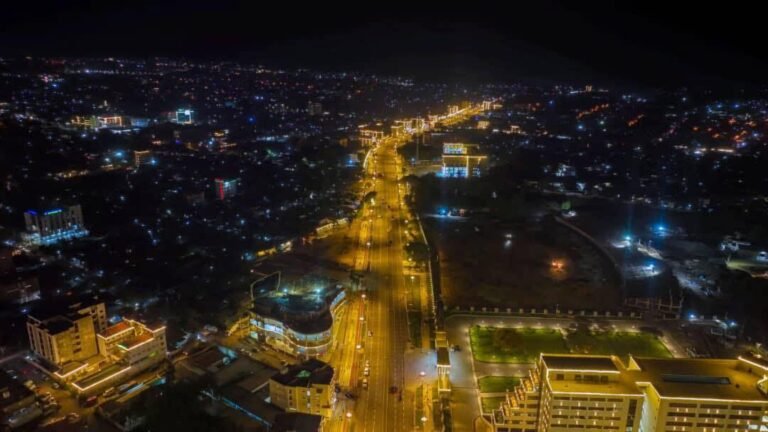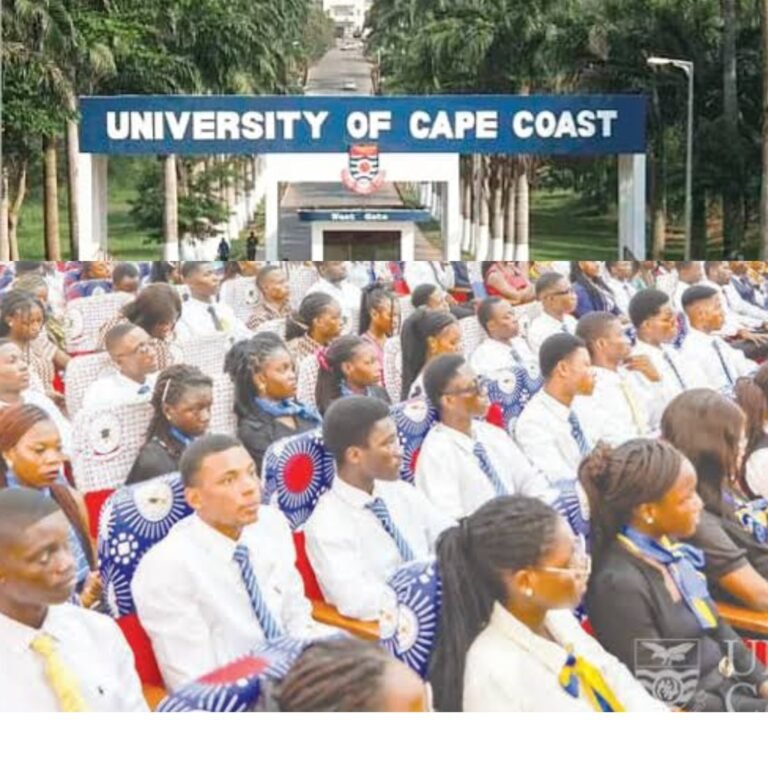
Prof Aaron Mike Oquaye and his Nigerian counterpart, Olufemi Gbajabiamila
Ghana’s Speaker of Parliament, Aaron Mike Oquaye, and his Nigerian counterpart, Olufemi Gbajabiamila, have held talks to find solutions to the challenges brought about as a result of Ghana’s implementation of the Ghana Investment Promotion Centre (GIPC) Act 2013, Act 865.
Discussions so far have been on how the implementation of Act 865 can be practicalised in a manner that will not render Nigerian traders in Ghana jobless, since most of them have had their shops closed and some fines levied at them, in accordance with the provisions of Act 865.
Ghana’s sovereignty and national interest in the matter have been at the front burner in all the discussions held so far.
In his submissions at a round table discussion in Parliament on Wednesday, Speaker Olufemi Gbajabiamila referred to the economic, social and political ties that bind Ghana and Nigeria together, and urged the two countries to use legislative diplomacy to resolve the issues confronting them.
This, he said, is most appropriate, saying he and his Ghanaian counterpart, on previous occasions, worked together using the same tools to resolve economic issues not only between the two countries but in the sub-region.
Assurances
the Minister of Trade and Industry, Alan Kyerematen, explained the context of the GIPC Act and its implementation, saying it was not targeted at any particular nationals and, definitely, not Nigerians.
He outlined ways by which the two countries can have mutual trade relations with the requisite benefits.
Assuring Nigeria of Ghana’s good intentions, Prof Mike Oquaye pointed out that reports on the matter may have escalated tensions, and cautioned that private or commercial arrangements between individuals and organisations of the two countries should not be confused with governments’ engagements.
He also encouraged the use of diplomacy in the resolutions.
Participants in the discussions included a 12-member delegation from Nigeria, sector ministers for Trade and National Security, a Deputy Minister of Foreign Affairs and the Chief Executive Officer of GIPC. The rest are the Chairman and Deputy Ranking Member of the Parliamentary Committee on Foreign Affairs, the Clerk to Parliament and some key parliamentary staff.
Background
The Presidential Committee on Retail Trade, under the Ministry of Trade and Industry, began closing shops belonging to foreign retail traders at Kwame Nkrumah Circle, Accra.
The committee’s actions followed notices served ahead of time to these foreigners to that effect.
In recent times, there have been several encounters between Ghanaian traders and their foreign counterparts, especially Nigerians, over the involvement of the latter in retail business in Ghanaian markets.
The Ghana Union of Traders Association (GUTA) has frequently confronted the Nigerian trading community in Ghana against retail trading in the Ghanaian markets which led to the closure of shops, protests and destruction of property.
The Nigerian trading community has persistently argued that the Economic Community of West African States (ECOWAS) protocols allow free movement of goods and people across West Africa.
However, the ECOWAS protocols give foreigners space to transact business for only 90 days.
Section 28(2) of the Ghana Investment Promotion Centre Act, 865, however, expressly outlines the conditions under which a person who is not a citizen can engage in trading activities.
It provides that a person who is not a citizen may engage in a trading enterprise if that person invests in the enterprise, not less than $1million in cash or goods and services relevant to the investments.
The Act further provides that “trading” includes the purchasing and selling of imported goods and services.
A further condition imposed on foreign enterprises that intend to engage in trading by Section 28(4) is that such an enterprise must employ, at least, 20 skilled Ghanaians.
Source: dailystatesman-com-gh-799271.hostingersite.com/Business Desk







